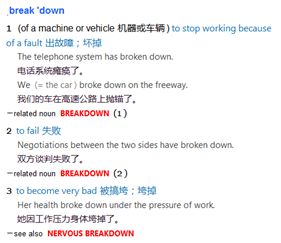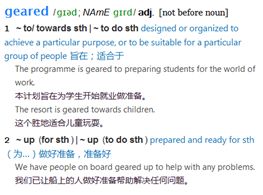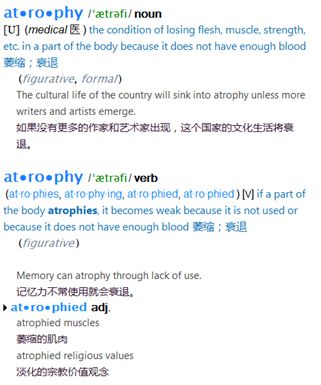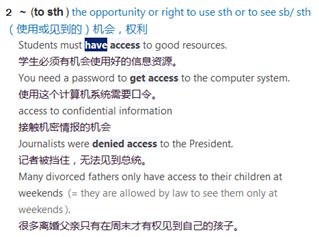本期原文选自The Economist 2017-01-14的文章Lifelong learning,释义来自牛津高阶七版、剑桥在线词典、灵格斯词典、有道词典、互动百科等资源。中文译文可以参照商论。如果您也在学习The Economist,欢迎订阅我的文集The Economist,一起学习交流。
Lifelong learning
It is easy to say that people need to keep learning throughout their careers. The practicalities are daunting
WHEN education fails to keep pace with【1】 technology, the result is inequality. Without the skills to stay useful as innovations arrive, workers suffer—and if enough of them fall behind【2】, society starts to fall apart. That fundamental insight seized reformers in the Industrial Revolution, heralding state-funded universal schooling【3】. Later, automation in factories and offices called forth a surge in college graduates. The combination of education and innovation, spread over decades, led to a remarkable flowering of prosperity.
【1】keep pace with 跟上,保持同步;keep pace with the times 与时俱进
【2】fall behind sb/sth 落后,落在……后面
【3】universal schooling 普及教育;compulsory schooling义务教育;full-time schooling 全日制教育;schooling 学校教育,学费
Today robotics and artificial intelligence call for another education revolution. This time, however, working lives【4】 are so lengthy and so fast-changing that simply cramming【5】 more schooling in at the start is not enough. People must also be able to acquire new skills throughout their careers.
【4】working life工作生涯
【5】cram sth (in) 挤满,塞满
Unfortunately, as our special report in this issue sets out, the lifelong learning that exists today mainly benefits high achievers【6】—and is therefore more likely to exacerbate inequality than diminish it. If 21st-century economies are not to create a massive underclass【7】, policymakers urgently need to work out how to help all their citizens learn while they earn. So far, their ambition has fallen pitifully short【8】.
【6】achiever(事业)成功者;high achiever成功人士;low achiever成绩平庸的人
【7】underclass经济最底层,底层阶级,社会底层
【8】fall short 不足;fall short of sth 未达到,不符合
Machines or learning
The classic model of education—a burst at the start and top-ups【9】 through company training—is breaking down【10】. One reason is the need for new, and constantly updated, skills. Manufacturing increasingly calls for brain work rather than metal-bashing【11】 (see Briefing). The share of the American workforce employed in routine office jobs declined from 25.5% to 21% between 1996 and 2015. The single, stable career has gone the way of the Rolodex【12】.
【9】top-up 附加付款,补充饮料,此处是为了说明在学校教育中强化学习,之后通过公司培训加以补充的传统教育模式
【10】break down(机器或车辆)出故障,失败,垮掉
【11】bash猛击,抨击;bash the media抨击媒体;metal-bashing是指传统金属制品制造方式,此处是指蛮力,相对于前面的brain work(脑力劳动)而言
【12】Rolodex 旋转式名片架
Pushing people into ever-higher levels of formal education【13】 at the start of their lives is not the way to cope. Just 16% of Americans think that a four-year college degree prepares students very well for a good job. Although a vocational education【14】 promises that vital first hire, those with specialised training tend to withdraw from the labour force earlier than those with general education—perhaps because they are less adaptable.
【13】formal education正式教育,正规教育
【14】vocational education职业教育
At the same time on-the-job training【15】 is shrinking. In America and Britain it has fallen by roughly half in the past two decades. Self-employment【16】 is spreading, leaving more people to take responsibility for their own skills. Taking time out later in life to pursue a formal qualification is an option, but it costs money and most colleges are geared towards【17】 youngsters.
【15】on-the-job training在职培训
【16】Self-employment自营职业,个体经营;self-employer, the self-employed自雇者;freelancer自由职业者;slash斜杠青年
【17】geared to/towards sth, geared to do sth适合于,针对于
The market is innovating to enable workers to learn and earn in new ways. Providers from General Assembly to Pluralsight are building businesses on the promise of boosting and rebooting careers. Massive open online courses (MOOCs)【19】 have veered away from lectures on Plato or black holes in favour of courses that make their students more employable. At Udacity and Coursera self-improvers pay for cheap, short programmes that bestow【20】 “microcredentials” and “nanodegrees” in, say, self-driving cars【21】 or the Android operating system. By offering degrees online, universities are making it easier for professionals to burnish their skills. A single master’s programme from Georgia Tech could expand the annual output of computer-science master’s degrees in America by close to 10%.
【19】Massive open online courses (MOOCs)大规模开放式在线课程
【20】bestow授予,给予
【21】self-driving car自动驾驶汽车
Such efforts demonstrate how to interleave careers and learning. But left to its own devices, this nascent market will mainly serve those who already have advantages. It is easier to learn later in life if you enjoyed the classroom first time around: about 80% of the learners on Coursera already have degrees. Online learning requires some IT literacy, yet one in four adults in the OECD has no or limited experience of computers. Skills atrophy【22】 unless they are used, but many low-end jobs give workers little chance to practise them.
【22】atrophy萎缩,衰退
Shampoo technician wanted
If new ways of learning are to help those who need them most, policymakers should be aiming for something far more radical. Because education is a public good【23】 whose benefits spill over to all of society, governments have a vital role to play—not just by spending more, but also by spending wisely.
【23】public good公益事业
Lifelong learning starts at school. As a rule, education should not be narrowly vocational. The curriculum needs to teach children how to study and think. A focus on “metacognition【24】” will make them better at picking up skills later in life.
【24】metacognition元认知,是一个人所具有的关于自己思维活动和学习活动的认知和监控,是关于认知的认知,是个体对自己的认知加工过程的自我觉察、自我反省、自我评价与自我调节
But the biggest change is to make adult learning routinely accessible to all. One way is for citizens to receive vouchers【25】 that they can use to pay for training. Singapore has such “individual learning accounts”; it has given money to everyone over 25 to spend on any of 500 approved courses. So far each citizen has only a few hundred dollars, but it is early days.
【25】voucher代金券,票券
Courses paid for by taxpayers risk being wasteful. But industry can help by steering people towards the skills it wants and by working with MOOCs and colleges to design courses that are relevant. Companies can also encourage their staff to learn. AT&T, a telecoms firm which wants to equip its workforce with digital skills, spends $30m a year on reimbursing【26】 employees’ tuition costs. Trade unions can play a useful role as organisers of lifelong learning, particularly for those—workers in small firms or the self-employed—for whom company-provided training is unlikely. A union-run training programme in Britain has support from political parties on the right and left.
【26】reimburse报销,偿付
To make all this training worthwhile, governments need to slash the licensing requirements【27】 and other barriers that make it hard for newcomers to enter occupations【28】. Rather than asking for 300 hours’ practice to qualify to wash hair, for instance, the state of Tennessee should let hairdressers decide for themselves who is the best person to hire.
【27】licensing requirements职业资格要求
【28】newcomers to enter occupations新人入行
Not everyone will successfully navigate the shifting jobs market. Those most at risk of technological disruption are men in blue-collar jobs, many of whom reject taking less “masculine” roles in fast-growing areas such as health care. But to keep the numbers of those left behind to a minimum, all adults must have access to【29】 flexible, affordable training. The 19th and 20th centuries saw stunning advances in education. That should be the scale of the ambition today.
【29】have access to有机会/权利获得
*注:本文仅供学习交流之用,不代表作者观点。















